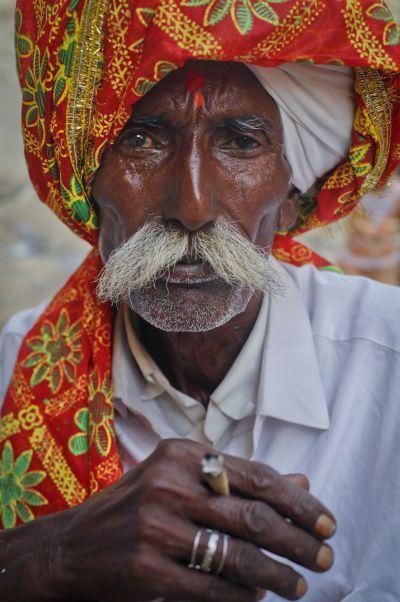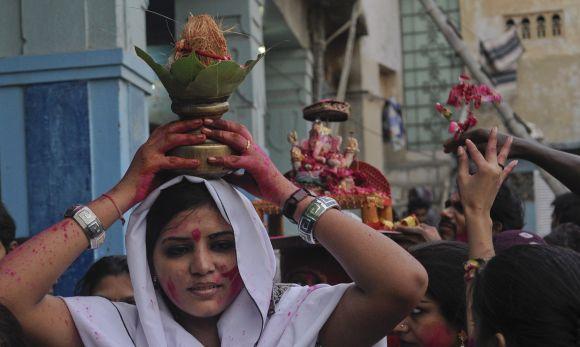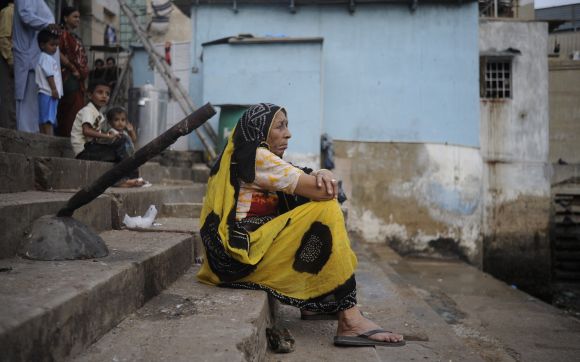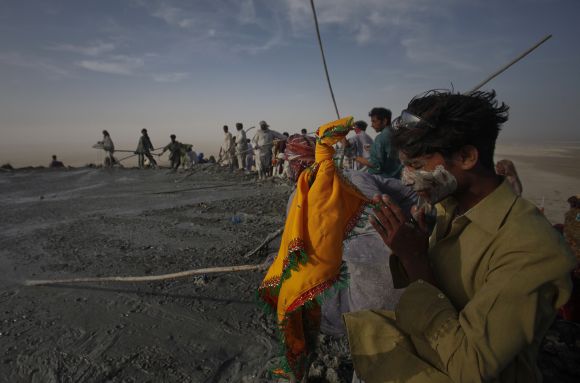
The Indian government needs to do more. India's responsibility towards the Hindus of Pakistan is not a matter of gratis; it is a political and legal obligation, says Vivek Gumaste
"You are free; you are free to go to your temples, you are free to go to your mosques or to any other place or worship in this State of Pakistan. You may belong to any religion or caste or creed that has nothing to do with the business of the State. We are starting with this fundamental principle that we are all citizens and equal citizens of one State."
Thus spoke Muhammad Ali Jinnah, the first governor general of Pakistan in his presidential address to the constituent assembly of Pakistan on August 11, 1947. Viewed in isolation, this sanctimonious assertion stands out as a classic exposition of non-partisan secularism.
But when interpreted in the context of the historical genesis and evolution of Pakistan, one cannot but aver that these were shallow inanities; mouthings to assuage the guilty conscience of a man who had succumbed to political avarice to vivisect a nation; or even an act of political knavery designed to confer respectability to a nation conceived in inveterate animus.
Sixty-six years later the nihilism of Jinnah's statement is supremely evident in the plight of the Hindus. They are not free to go to their temples as they have been willfully destroyed. They are not equal citizens of one state but victims of a religious apartheid. They live in a state of perpetual dread with their daughters, property and religious places being constantly targeted.
...
Basically it is an existence devoid of basic human rights that we have come to accept as the norm of the modern world. As a result of this systematic oppression, the population of the Hindu minority of Pakistan has dwindled from 22 per cent in 1947 to less than 2 per cent today.
On March 30 in Jacobabad, a district capital, Ganga, the daughter of Ashok Kumar was forcibly abducted, converted to Islam and betrothed to a Muslim man much against her wishes and those of her parents. This is not the first time that such a barbaric incident has occurred in Pakistan and will certainly not be the last.
This is a part of a larger calculated strategy of persecution of the Hindus by religious zealots; a campaign that has the tacit support of the authorities and the passive acquiescence of its general population.
According to a report prepared by the Asian Centre for Human Rights: "... kidnapping and then raping and forcibly marrying Hindu girls is a common practice in Pakistan. In the event where the police arrest the accused, they produce a certificate issued by any Muslim seminary that the kidnapped girls have voluntarily adopted Islam and they married the girls.
The courts generally do not consider the fact that the most of the girls are minor and simply accept the certificate of conversion without any investigation. It has been reported that more than 15 families are forcibly converted from Hinduism to Islam in Sindh province every year."
...
The United States Commission on International Religious Freedom in its 2011 Annual Report suggests that this practice is much more prevalent indicating that approximately 20 to 25 young Hindu women are abducted and forcibly converted every month; the victims' families often fail to file a police report fearing violent retaliation.
Next in line in this vicious witch hunt are Hindu temples that are routinely destroyed, neglected, usurped or turned into commercial properties: Below are excerpts from a Hindu American Foundation of the USA report:
This oppression continues unabated as the Hindu community so far has had no champions: a fallout from the Hindu theology of self-negation that inculcates an intrinsic inhibition to stand up for one's own rights.
...
Fortunately this is changing. However, the most strident opposition to the persecution of Hindus does not come from the one billion Hindus of India, its government or its free press. In fact at the forefront of this battle is a fledgling organisation, the HAF.
The HAF is the brainchild of Hindu-Americans and has been in existence since 2003. In this short tenure, it has done yeoman service to the Hindu cause consistently highlighting the plight of Hindu minorities all over the world but particularly Pakistan.
Kudos to the organisation.
On April 8, 1950, Pakistan's PM Liaquat Ali Khan and India's PM Jawaharlal Nehru signed a bilateral pact that ensured equal rights for minorities in their respective countries. India has kept its side of the bargain.
Muslims have flourished in India notwithstanding the unsubstantiated gripe that we constantly hear: the Muslim population has increased from 10 per cent in 1947 to at least 13.4 per cent (2001 census. Figures from 2011 census not available yet); Muslims are found in every walk of life: the Shah Rukh Khans dominate the entertainment industry and we have had three Muslim Presidents.
The Indian government needs to do more. India's responsibility towards the Hindus of Pakistan is not a matter of gratis; it is a political and legal obligation that stems from the Nehru-Liaquat Ali Khan treaty. More importantly India owes a moral duty to those Hindus, Sikhs and Christians whom we abandoned to the vagaries of a theocratic state in 1947.
...